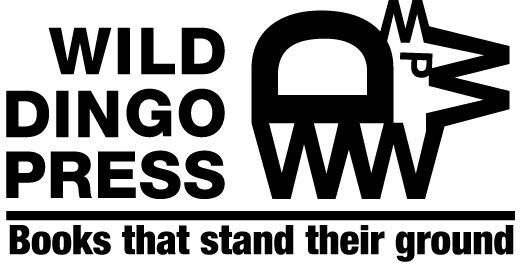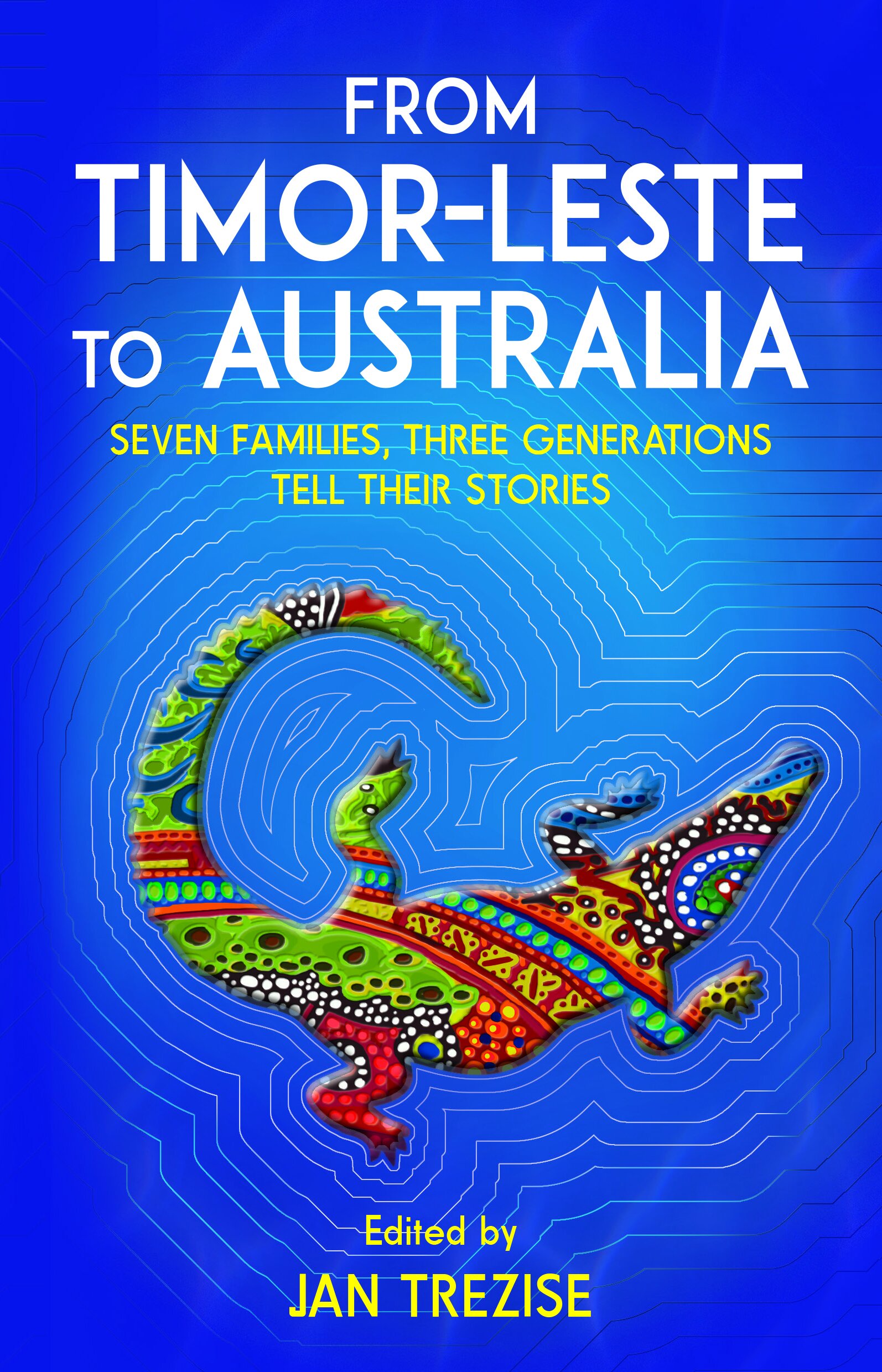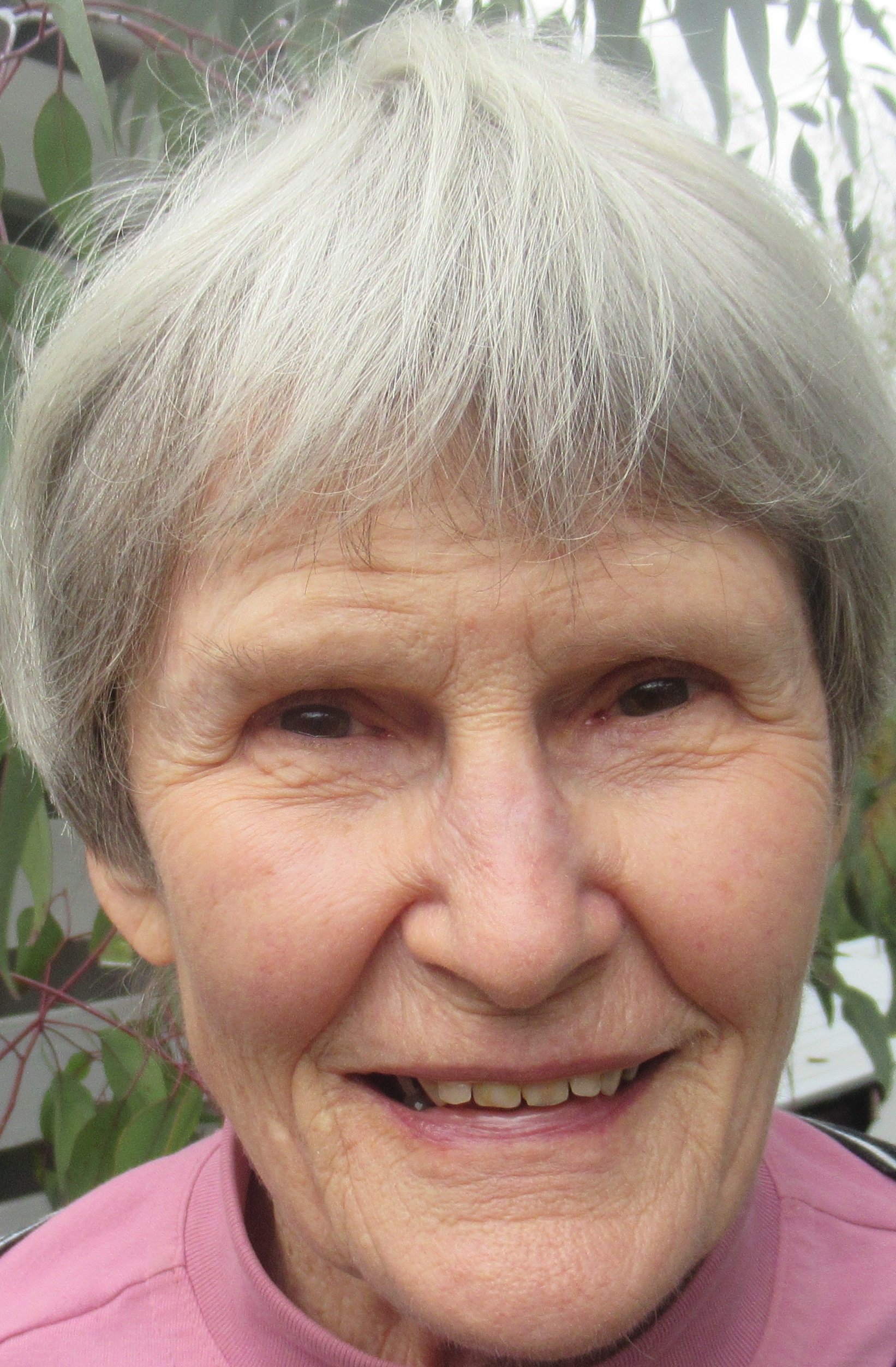From Timor-Leste to Australia: Seven families, three generations tell their stories
Edited by Jan Tresize
A collection of poignant stories and poems of seven East Timorese families living in Melbourne whose experiences belong to that long history of human tragedy created where violent conflict of power, land and resources takes place, inevitably visiting on ordinary people, disruption and loss. Since 1975 to 1999, men, women and children, and even grandparents, have been forced to flee their beloved homeland, their culture, their language, their families––and the graves of those murdered in repeated massacres over those years.
The East Timorese have a special place in our history: so close geographically; giving succour and safe haven to our soldiers during the Japanese occupation of their island; our government in 1975 giving tacit support for an Indonesian invasion with its consequent brutal oppression; and later, in the bloody aftermath of the 1999 independence vote, Australia supporting independence and leading a UN international peace-keeping force to the island.
And from 1975 to 1999, refugees arrived in Australia, mostly settling in Melbourne, quietly making new lives, without fuss or fanfare. Some returned after independence, many contributing their Australian-acquired skills and experience to the fledgling country.
Until now, their stories, written by people in their community, have not been recorded and published. With a heritage tied so closely to Australia in so many ways, this collection represents an essential part of the great story of migration, whether voluntary or forced, to this country particularly in the last 50 years. The reader will be moved by these remarkable, courageous, and resilient people, who endured so much, just on our doorstep.
The East Timorese families in these stories settled in the City of Casey in Melbourne’s south-east. The stories are woven into the history of East Timor, a country that was colonised by Portugal for four hundred years, invaded by the Japanese during World War Two, later abandoned by its colonisers and suffered civil war before being invaded by neighbouring Indonesia.
In the various periods of this history there are acts of defiance against oppression which resulted in family members being exiled, imprisoned or executed. In two families this fate was passed down through several generations.
Some families were split apart as a result of war and conflict, suffering separation for many years. One family of seven children lost their father and were then separated from their mother for more than three years. A 13-year-old girl was away from home when her family were forced to flee. Left behind, she suffered incredible trauma for many years before being reunited with the other family members.
Several mothers and some grandmothers were left alone in conflict zones to care for their children and grandchildren, and some were forced to take refuge before being able to escape. And yet, in times when family members were suffering great deprivation at the hands of occupying forces, there were small acts of kindness by individual soldiers.
Edited by Jan Tresize
A collection of poignant stories and poems of seven East Timorese families living in Melbourne whose experiences belong to that long history of human tragedy created where violent conflict of power, land and resources takes place, inevitably visiting on ordinary people, disruption and loss. Since 1975 to 1999, men, women and children, and even grandparents, have been forced to flee their beloved homeland, their culture, their language, their families––and the graves of those murdered in repeated massacres over those years.
The East Timorese have a special place in our history: so close geographically; giving succour and safe haven to our soldiers during the Japanese occupation of their island; our government in 1975 giving tacit support for an Indonesian invasion with its consequent brutal oppression; and later, in the bloody aftermath of the 1999 independence vote, Australia supporting independence and leading a UN international peace-keeping force to the island.
And from 1975 to 1999, refugees arrived in Australia, mostly settling in Melbourne, quietly making new lives, without fuss or fanfare. Some returned after independence, many contributing their Australian-acquired skills and experience to the fledgling country.
Until now, their stories, written by people in their community, have not been recorded and published. With a heritage tied so closely to Australia in so many ways, this collection represents an essential part of the great story of migration, whether voluntary or forced, to this country particularly in the last 50 years. The reader will be moved by these remarkable, courageous, and resilient people, who endured so much, just on our doorstep.
The East Timorese families in these stories settled in the City of Casey in Melbourne’s south-east. The stories are woven into the history of East Timor, a country that was colonised by Portugal for four hundred years, invaded by the Japanese during World War Two, later abandoned by its colonisers and suffered civil war before being invaded by neighbouring Indonesia.
In the various periods of this history there are acts of defiance against oppression which resulted in family members being exiled, imprisoned or executed. In two families this fate was passed down through several generations.
Some families were split apart as a result of war and conflict, suffering separation for many years. One family of seven children lost their father and were then separated from their mother for more than three years. A 13-year-old girl was away from home when her family were forced to flee. Left behind, she suffered incredible trauma for many years before being reunited with the other family members.
Several mothers and some grandmothers were left alone in conflict zones to care for their children and grandchildren, and some were forced to take refuge before being able to escape. And yet, in times when family members were suffering great deprivation at the hands of occupying forces, there were small acts of kindness by individual soldiers.
Edited by Jan Tresize
A collection of poignant stories and poems of seven East Timorese families living in Melbourne whose experiences belong to that long history of human tragedy created where violent conflict of power, land and resources takes place, inevitably visiting on ordinary people, disruption and loss. Since 1975 to 1999, men, women and children, and even grandparents, have been forced to flee their beloved homeland, their culture, their language, their families––and the graves of those murdered in repeated massacres over those years.
The East Timorese have a special place in our history: so close geographically; giving succour and safe haven to our soldiers during the Japanese occupation of their island; our government in 1975 giving tacit support for an Indonesian invasion with its consequent brutal oppression; and later, in the bloody aftermath of the 1999 independence vote, Australia supporting independence and leading a UN international peace-keeping force to the island.
And from 1975 to 1999, refugees arrived in Australia, mostly settling in Melbourne, quietly making new lives, without fuss or fanfare. Some returned after independence, many contributing their Australian-acquired skills and experience to the fledgling country.
Until now, their stories, written by people in their community, have not been recorded and published. With a heritage tied so closely to Australia in so many ways, this collection represents an essential part of the great story of migration, whether voluntary or forced, to this country particularly in the last 50 years. The reader will be moved by these remarkable, courageous, and resilient people, who endured so much, just on our doorstep.
The East Timorese families in these stories settled in the City of Casey in Melbourne’s south-east. The stories are woven into the history of East Timor, a country that was colonised by Portugal for four hundred years, invaded by the Japanese during World War Two, later abandoned by its colonisers and suffered civil war before being invaded by neighbouring Indonesia.
In the various periods of this history there are acts of defiance against oppression which resulted in family members being exiled, imprisoned or executed. In two families this fate was passed down through several generations.
Some families were split apart as a result of war and conflict, suffering separation for many years. One family of seven children lost their father and were then separated from their mother for more than three years. A 13-year-old girl was away from home when her family were forced to flee. Left behind, she suffered incredible trauma for many years before being reunited with the other family members.
Several mothers and some grandmothers were left alone in conflict zones to care for their children and grandchildren, and some were forced to take refuge before being able to escape. And yet, in times when family members were suffering great deprivation at the hands of occupying forces, there were small acts of kindness by individual soldiers.
-
2018 | 9780987381101 | 200 pages | Paperback | 210 x 135mm
-
East Timorese, conflict, power, stories, history, refugees, migrant stories, heritage, family histories
-
-
A collection of poignant stories and poems of seven East Timorese families living in Melbourne’s City of Casey whose experiences belong to that long history of human tragedy created where violent conflict of power, land and resources takes place, inevitably visiting on ordinary people, disruption and loss.
“From Timor-Leste to Australia is an interesting book, which presents the history of one of Australia’s closest neighbours, and tells the stories of the subjects in their own words. The stories are self-contained, yet also together tell the same story from multiple points of view in the way that they are woven together. The text is easy to access, enjoyable to read, and recommended for anyone who is interested in learning more about the history of Timor-Leste. ”
Jan Trezise grew up in Springvale South where successive groups of refugees and migrants settled in the surrounding areas. This early experience informed a lifelong activism in support of refugees. Read more.


